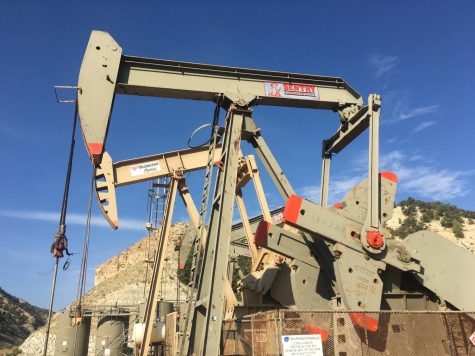OP-ED: A Right Step Forward for EPA Grants
Photo by Owen Davis
Over a gray sky, hundreds of plumes of smoke rise above a factory. Tall pipes spew hundreds of tons of this smog every day, all originating as byproducts of their production. Trucks are waiting outside to receive these products, emblazoned with a company logo. While this sight may be unfamiliar to some, it’s still an altogether too common sight for millions of people across the US — namely, disadvantaged communities.
These over-polluting corporations are much more prevalent in poorer communities, with these groups often being exploited to reduce costs. One study by the Institute of Medicine stated that “high land costs that discourage purchase for industrial uses in more affluent areas are likely to affect the distribution of pollutant sources,” with these politically and economically weaker groups being much likelier to become “repositories for pollution or waste” (Source 1). As these groups lack the resources to fight off industry placements, businesses like factories are placed in far greater numbers, causing higher pollution quantities.
These pollutants take a similar toll on these communities in health impacts. From heart disease to lung cancer, people suffer from emissions greatly, especially in respiratory illnesses like asthma. African Americans, who often are forced to live in these disadvantaged communities, are one group that suffers the greatest health risks as a result of climate change. The EPA itself stated that African Americans are “40% more likely to currently live in areas with the highest projected increases in extreme temperature-related deaths,” with this number being projected to only increase to 59% if global warming reaches a 4°C increase (Source 2).
But the Biden administration’s recent moves are taking action towards addressing these issues. On February 23rd, 2023, they announced a $550 million fund for 11 organizations across the United States meant to specifically benefit disadvantaged communities. This was part of the $3 billion allocated by Congress for environmental justice—a big step forward for promoting environmental equality amongst disadvantaged communities.
With the socioeconomic causes of environmental impacts, grants like this are a big improvement in terms of remediating past impacts. As voters, future voters, and students who shape our communities, we need to promote more policies like these. And through rallies, we can help solve modern issues like this today.
Source 1:
https://ehp.niehs.nih.gov/doi/pdf/10.1289/ehp.6334
Source 2:










